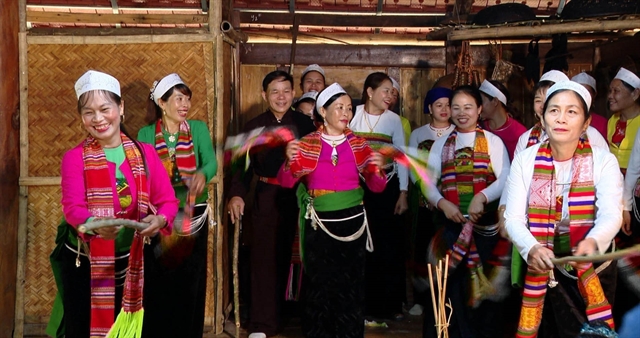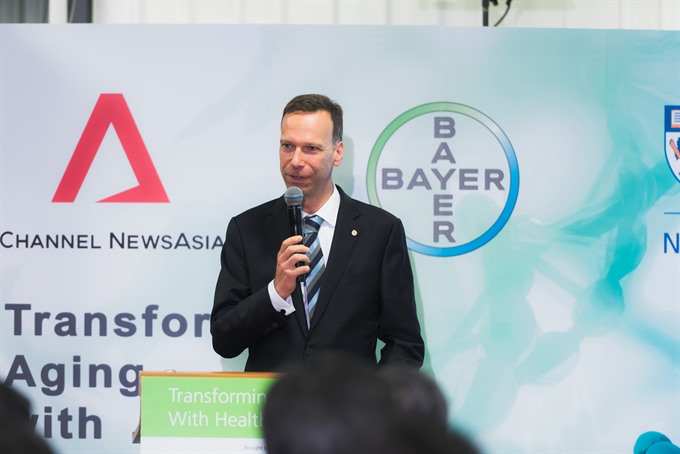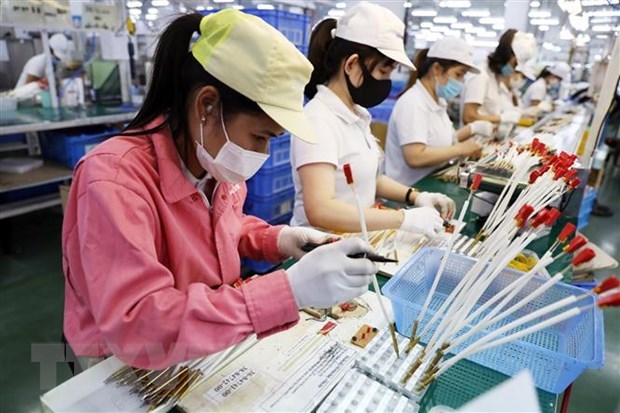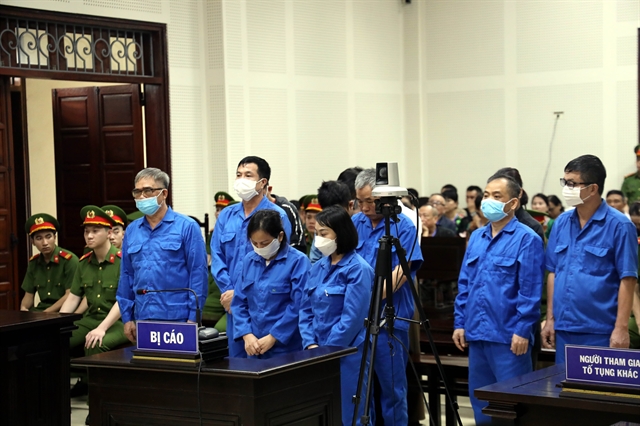

Health innovations including new medicines are enabling ageing populations in the Asia Pacific to live longer and better.
 |
| Claus Zieler, Senior VP/Head of Commercial Operations Bayer Pharmaceuticals Division Asia Pacific announces the launch of Bayer-NUS Grants4Apps Singapore challenge to call for innovative health tech solutions to improve medication adherence by elderly people at the conference. VNS Photo |
HCM CITY – Health innovations including new medicines are enabling ageing populations in the Asia Pacific to live longer and better.
“There is no doubt that across the Asia Pacific, populations are ageing,” Yoriko Yasukawa, regional director for Asia and the Pacific, United Nations Population Fund, has told a recent conference in Singapore titled “Transforming Ageing with Health Innovation”.
“This is the result of reduced mortality, rising longevity and reduced fertility which is in turn thanks to people, especially women, exercising their reproductive rights, and as such, we should celebrate this phenomenon.”
A World Bank report released last November says the older population in East Asia is estimated to grow by about 22 per cent every five years between 2015 and 2034.
The bank, in another database, has estimated that the percentage of people aged 60 and above in the Asia-Pacific region is set to double from 12 per cent of population to 24 per cent by 2050.
United Nations Department of Economic and Social Affairs, Population Division shows that in Việt Nam by 2050, the proportion of population aged 60 years old and above will more than double from 10.7 per cent to 27.9 per cent.
While living longer, elderly people are facing many chronic diseases such as diabetes, heart diseases, cancer, respiratory diseases, arthritis, hearing and vision loss, depression, dementia, and Alzheimer’s disease.
To meet the changing needs of ageing populations like preventing and treating diseases as well as to provide a better life to elderly people, many health innovations have been made.
They are aimed at ensuring the efficient and safe use of medicines, easing the administration of drugs, reducing dosage frequency, monitoring and reducing the burden of pills.
According to Chuan Kit Foo, head of medical affairs at the Bayer Pharmaceuticals Division Asia Pacific, when ageing populations increase, society requires new medicines to help treat chronic diseases.
For the last 20 years the pharmaceutical industry has been responsible for positive transformation in the treatment of these diseases with very good outcomes, he said.
“We have contributed to helping people live longer lives, where diseases are better controlled,” he said.
“We need to continue to develop new products that are more convenient, easier to use as well as products that are safer without side effects,” he said.
Xavier Xuanhao Chan, director of QuintilesIMS Institute Asia, said medicines had improved health outcomes with respect to diseases affecting older populations.
In the 25 years to 2020 nearly 1,000 new medicines would have been introduced globally, he said.
New brands based on existing medicines would offer improvements that address patient adherence and unmet needs, he said.
Chan quoted a report released in November by his institute on cancer which says, “New therapies have contributed to a 23 per cent decline in death since the 1990s and two out of three people diagnosed with cancer now survive at least five years.”
On heart diseases, the report says combination drug therapy prevents serious complications and has led to a 75 per cent reduction in myocardial infarction among high-risk individuals.
On diabetes, it says effective treatment can reduce complications by 50 per cent.
Participants recommended multifaceted approaches that involve various stakeholders in society to help elderly people have a better life. Elderly people need care from their family, which understands their difficulties and needs. VNS









